by Joshua Thomas
Motorcycle riding is fun until wind noise starts disturbing you and that's when the quietest motorcycle helmets can help you and save your fun.
The big problem with motorcycle helmets, however, is that it's difficult to tell which helmet s better than the other without first checking them out.
A quiet helmet depends on many factors, such as how aerodynamic the helmet is and its interior design, such as the neck-roll and cheek pads.
That's why this quietest motorcycle helmets review provides you with a list of the quietest helmets in the market and additionally provides you with a buying guide, so you can choose precisely.
Contents
| IMAGE | PRODUCT | FEATURES |
|---|---|---|
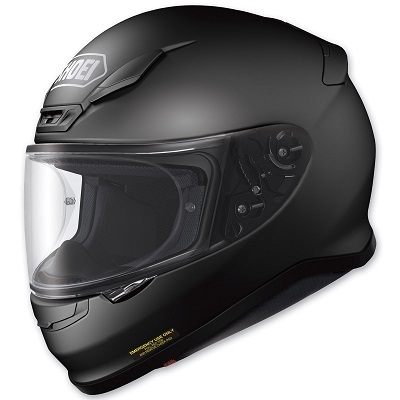 | 1. Shoei Rf-1200 (Best Overall) |
|
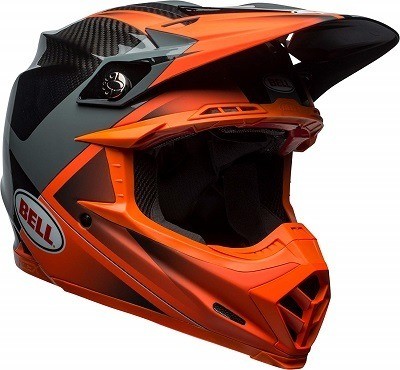 | 2. Bell Moto-9 Flex |
|
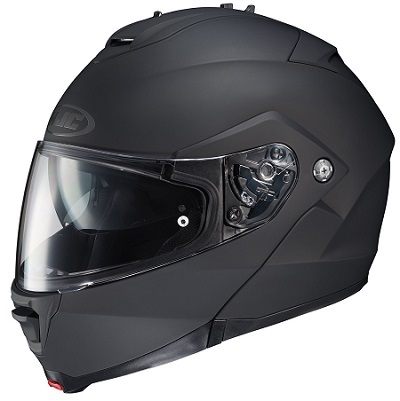 | 3. HJC 980 |
|
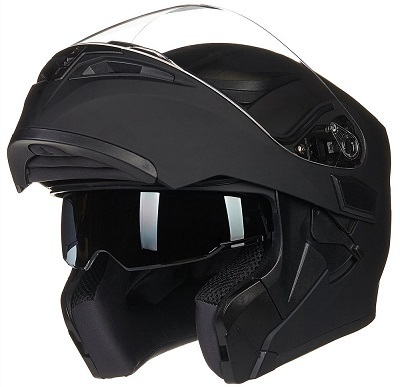 | 4. ILM 902 |
|
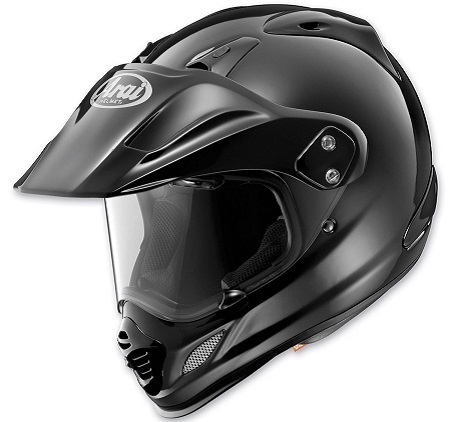 | 5. Arai XD4 |
|
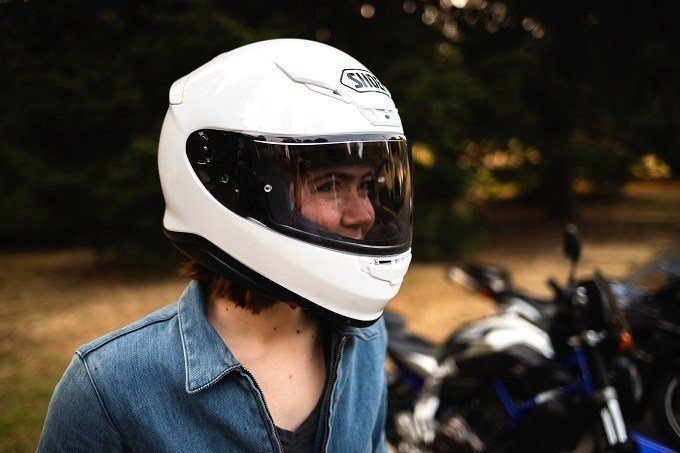

The Shoei Rf-1200 is not just the best noise-canceling motorcycle helmet, it comes with so many impressive features that you'll immediately fall in love with it as has so many riders.
Shoei is a respected brand and for good reasons. The helmet gets made using a multi-ply matrix of fiberglass with organic fibers and resin to create a super-tough, light, and elastic helmet shell.
You then get a dual-layer EPS liner and Shoei's 3D MAX-DRY interior system, which is a fully removable, washable, adjustable, and replaceable system with a three-dimensional design to fit any rider's head.
Although this helmet is relatively costly, which is the major drawback of this offer, the superior ventilation, DOT and Snell certifications, as well as the accompanying 5-year warranty, make it worth it.
Pros:
Cons:


Also featuring DOT and Snell certifications, Bell's Moto-9 Flex is a top quality helmet and one of the most comfortable quiet motorcycle helmets for off-road racers.
It features a carbon fiber shell construction, with a 3-layer impact liner for the most protection from impacts. It also includes advanced flow dynamics to offer a highly efficient ventilation system.
Other important features include its eject system, quick-flip visor screws, and magnetic cheek pads, which are easily removable for washing and during emergencies.
One downside is its price, which is higher than that of the Shoei helmet above. It's also an off-road helmet and not the best helmet for the streets or cruising. Bell offers it in 24 colors anyway and backs the package with a 5-year warranty.
Pros:
Cons:


This HJC 980 helmet is the cheapest offer so far on this list. It features an advanced polycarbonate composite shell with an adjustable chin-bar from polycarbonate as well.
You'll also find other impressive features like the single-button and one-handed chin-bar and face-shield release that switches this modular helmet from a full-face to an open-face helmet.
HJC also adds an ACS advanced channeling ventilation system that provides proper airflow from front to back while keeping ambient noise to a minimum to make it one of the quietest modular motorcycle helmets out there.
For its cons, this helmet isn't Snell-certified like the previous two helmets on this list, plus it doesn't have as much color options as the others. Still, you can choose from any of its six colors on offer and nine sizes for the perfect fit.
You also get a moisture-wicking and anti-bacterial interior liner, which is removable and easy to wash.
Pros:
Cons:


If you're looking for the quietest motorcycle helmet at the best price, then check out this ILM 902 helmet package. It comes with lots of impressive features beginning with its modular design between full-face and open-face helmets.
It's also sleek and cuts through the wind with as little disturbance as possible, making it a good bargain for its price. You get a wide visor with anti-fog and anti-scratch qualities, a flip function that switches between the two helmet modes, and a precisely-adjustable strap.
There's also a second tinted visor, which is easy to flip-up and down without opening the outer visor. You get a liner and cheek pads, which are soft and lightweight, as well as easy to remove and wash.
One con, however, is that its ABS shell isn't as tough as the materials on the other helmets. Another con is the relatively short 1-year warranty. On the positive side, it meets the DOT safety standards and comes at a very low and attractive price.
Pros:
Cons:


The Arai XD4 is also one of the best motorcycle helmets for wind noise prevention out there, designed for those who love off-roading and street riding as well.
Its dual-sport helmet design makes it perfectly sound-proof and additionally protects the rider from the other elements such as wind, dirt, and moisture.
The XD4 comes in six sizes from X-Small to XX-Large and it's available in seven colors and configurations as well. Being an off-road helmet, it includes the standard off-road visor and features an emergency cheek pad release system.
For its downsides, it's not cheap and it doesn't have a Snell certification, but it's DOT certified and Arai also backs it with a solid 5-year warranty, making it one of the best and quietest motorcycle helmets out there.
Pros:
Cons:

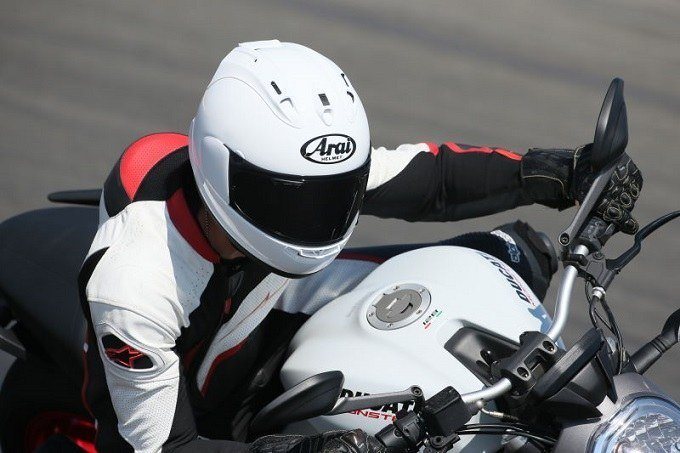
Loud noise from your bike's engine, the winds, trees, and other traffic on the road can take its toll on you, especially when you've ridden for a long while. This makes it necessary that you better understand helmets and sound-proofing.
Keep in mind that you can also quieten things by yourself as well, by wearing earmuffs, wearing a scarf around the neck, wearing a face mask, and of course, getting a properly-sized helmet.
Following are the important aspects to look out for when choosing a quiet helmet.
This point comes up first because of its importance when it comes to speed and noise. Aerodynamics refers to an object's design that makes it easier for it to move through the wind with as little resistance as possible.
This is important because you'll get drag, vibrations, and other disturbances when air is not flowing smoothly around your helmet, especially when you're speeding.
So, always consider the helmet's design and consider how easily it can slide through the air, because the more aerodynamic it is, is the quieter the helmet will turn out.
A helmet's construction material is also important because it determines how safe the helmet is, as well as how quiet the helmet will turn out.
Most helmets get made using Polycarbonate, ABS, fiberglass, and similar materials. Some helmets also get manufactured using a composite of two or more materials, the important factor here being strength and weight.
The best helmets are as lightweight as possible while offering the highest level of material strength, such as fiberglass and carbon fiber helmets.
A helmet's safety depends on many factors, such as the construction materials, their thickness, and the type of helmet. So, while fiberglass and carbon fiber might be tougher than Thermoplastic, for instance, the material's thickness also goes a long way in determining its strength.
For helmet style, full-face and modular helmets offer the most protection, as well as basic sound-proofing qualities. To make sure you get a safe helmet, always look for a DOT certification in the US or an ECE in Europe, and if you want the very best, then look for the Snell certification.
There are many motorcycle helmet styles, including the full-face helmet, the open-face helmet, modular helmets, half helmets, and off-road helmets.
Of all these styles, full-face and modular helmets offer the best sound-proofing characteristics. A full-face helmet is a type that covers the entire head, while a modular helmet can either cover the entire head or opened up to show the entire face.
Full-face and modular helmets usually need a ventilation system to cut down on sweating and offer good aeration inside them, so you also need to consider this.
Some even offer adjustable ventilation, while most off-road helmets focus on just keeping the internal liners fresh and less sweaty.
We've reached the end of this quietest motorcycle helmets review and you've seen the very best in motorcycle helmets when it comes to quietness and smooth rides.
No doubt, you should have an idea of which helmet to choose by now and it's better this way because no helmet is simply the best. We are all different and need different helmets to meet our different needs as well.
 |
 |
 |
 |

About Joshua Thomas
Joshua Thomas just simply loves cars and willing to work on them whenever there's chance... sometimes for free.
He started CarCareTotal back in 2017 from the advices of total strangers who witnessed his amazing skills in car repairs here and there.
His goal with this creation is to help car owners better learn how to maintain and repair their cars; as such, the site would cover alot of areas: troubleshooting, product recommendations, tips & tricks.
Joshua received Bachelor of Science in Mechanical Engineering at San Diego State University.